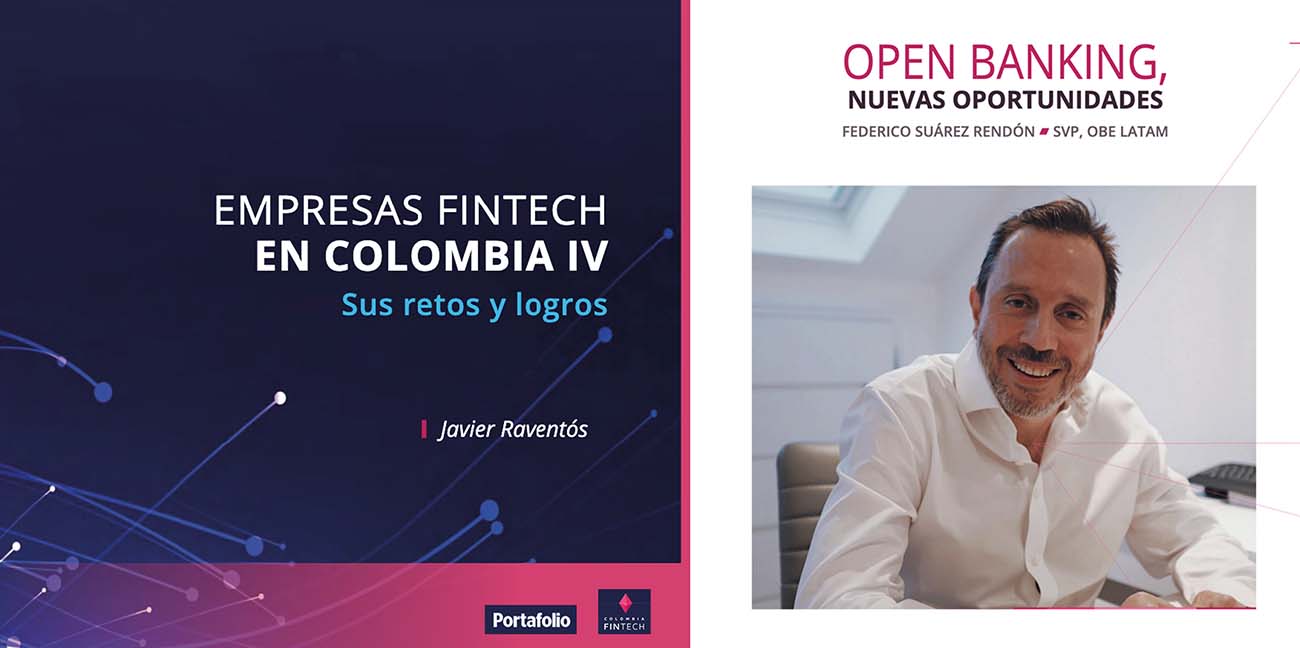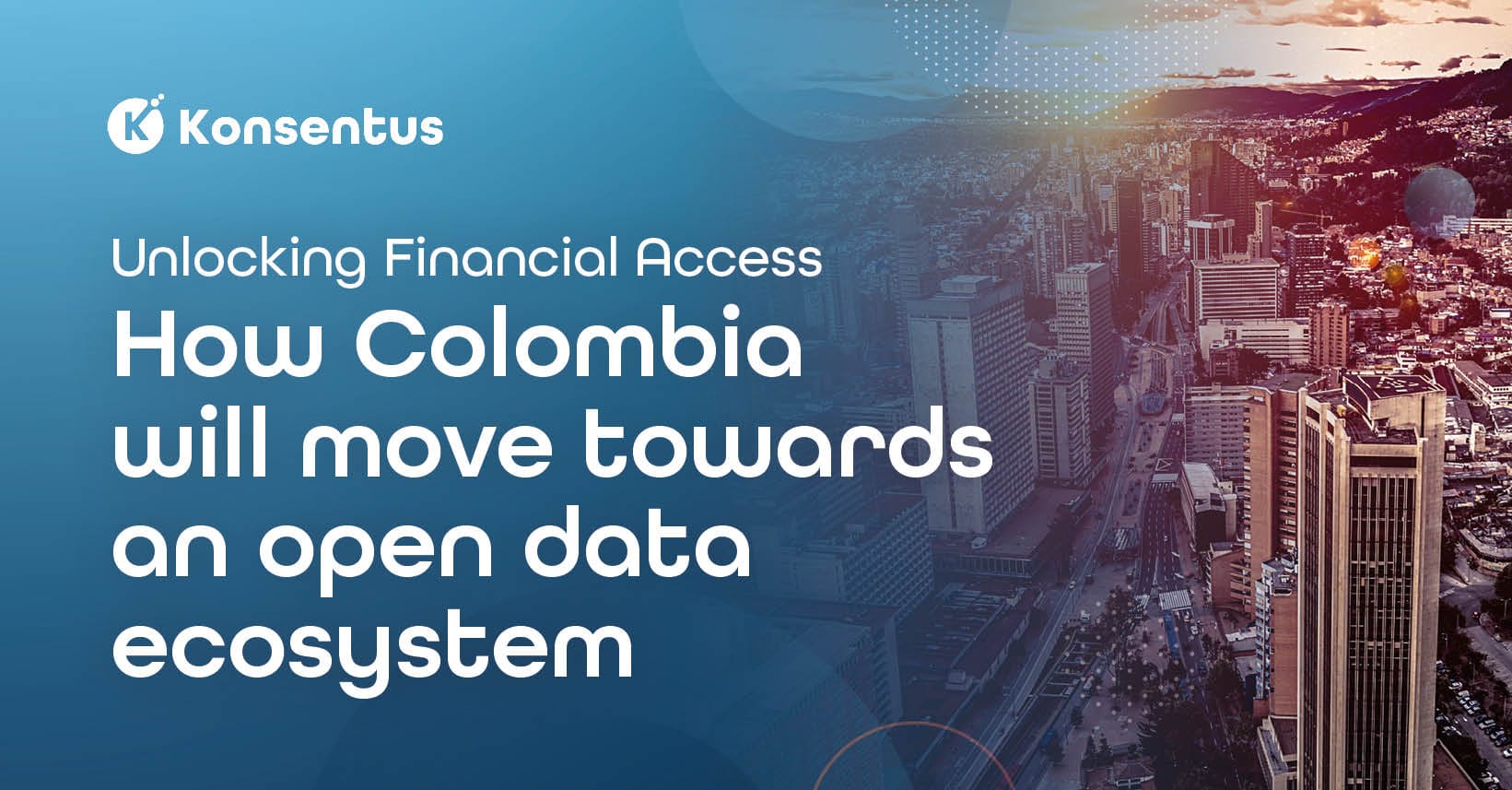We would like to thank Javier Raventos for the wonderful work and for inviting us to collaborate in this fourth version of the Empresas Fintech de Colombia book.
ENGLISH
Open finance and therefore the exchange of data in a consented way have entered the scene, becoming a competitive advantage when offering financial products and services. The use of data in an interoperable and consented way will transform the way in which financial products and services are consumed, going from “being sold” to the consumer to “being consumed” by them as an integral part of the final product acquisition experience, radically transforming the way in which these are offered today.
At the center of this transformation are data, an asset that each individual possesses, and which regulation has empowered to use, allowing the elucidation of consumption patterns, tastes, identity, suitability. By sharing such data, the consumer hopes to receive a better product or service from their service providers. Open finance is the enabler of this exchange, guaranteeing through rules and standards that it is done safely.
Some will say that this has been done for a long time, which is not entirely wrong. What changes is how the sharing of this data begins to be done in an interoperable way, with rules common to all, so that innovators, big or small, have the opportunity to deliver to the current and future consumer, products and services in a way safe, friendly and cost-efficient.
This change towards interoperability implies bringing the different actors to the table with the aim of defining those rules and standards that allow a robust infrastructure to be developed through joint work that guarantees access to a greater number of people and that these they can access financial products and services that today are far from them or that are not yet adequately offered.
It would suffice to compare this “big-bang of data” with the growth of the credit and debit card market when the infrastructure of these means of payment allowed their use without distinction of who is the operator at the point of payment, to understand the impact that this data interoperability can have on the ecosystem. We are facing a change that has the opportunity to positively impact many people who today do not have access to financial products and services.
The opportunity is focused on the ability to develop new business models in which the different actors work with each other, leveraging the best skills of each one, allowing the development of products that can be distributed at a lower cost and to more people. Financial institutions – banks, financing companies, sedpes, insurance companies, brokerage firms, pension and securities fund managers, among others – and fintechs will be able, in this new environment, to collaborate closely in a market opportunity that transcends the universe of consumers that are served today.
We are facing a disruption that will bring multiple benefits to consumers; a greater offer and a better experience when consuming, enabled by the ability to use data as a rich source of knowledge of people and companies. Through the data, each consumer will be able to receive a better and more appropriate value proposition than the one they currently receive.
But the great value lies in being able to serve those consumers who are not served today and that through their consumption data – financial services, public services, rentals, transportation and others – will allow financial institutions and fintechs to build products designed to include those that today are excluded.
For financial institutions and fintechs, we are facing a great opportunity to enhance their skills and expand the size of what is now their market.
SPANISH
Las finanzas abiertas y por ende el intercambio de datos de manera consentida han entrado en escena convirtiéndose en una ventaja competitiva al ofrecer productos y servicios financieros. El uso de datos de forma interoperable y consentida transformara la manera como productos y servicios financieros son consumidos pasando de “ser vendidos” al consumidor a “ser consumidos” por este como parte integral de la experiencia de adquisición del producto final transformando radicalmente la manera como hoy se ofrecen estos.
En el centro de esta transformación se encuentran los datos, activo que cada individuo posee, y el cual la regulación ha empoderado a usar, permitiendo dilucidar patrones de consumo, gustos, identidad, idoneidad. Al compartir dichos datos, el consumidor espera recibir un mejor producto o servicio por parte de sus proveedores de servicio. Las finanzas abiertas son el habilitador de este intercambio, garantizando a través de reglas y estándares que se haga de manera segura.
Algunos dirán que esto se viene haciendo hace un buen tiempo lo cual no es del todo errado. Lo que cambia es como el compartir de estos datos se comienza a hacer de manera interoperable, con reglas comunes a todos, para que innovadores, grandes o chicos, tenga la oportunidad de entregar al consumidor, actual y futuro, productos y servicios de una manera segura, amigable y costo-eficiente.
Este cambio hacia la interoperabilidad implica sentar a la mesa los diferentes actores con el animo de definir esas reglas y estándares que permiten que a través de un trabajo conjunto se pueda desarrollar una infraestructura robusta que garantice el acceso a un mayor número de personas y que estas puedan acceder a productos y servicios financieros que hoy le son lejanos o que todavía no les ofrecen de forma adecuada.
Bastaría comparar este “big-bang de la data” con el crecimiento que tuvo el mercado de tarjetas de crédito y debito cuando la infraestructura de estos medios de pago permitió su uso sin distinción de quien es el operador en el punto de pago, para entender el impacto que esta interoperabilidad en datos puede tener sobre el ecosistema. Estamos ante un cambio que tiene la oportunidad de impactar de manera positiva a muchas personas que hoy no acceden a productos y servicios financieros.
La oportunidad se centra en la capacidad para desarrollar nuevos modelos de negocio en la cual los diferentes actores trabajan entre si apalancando las mejores habilidades de cada uno, permitiendo el desarrollo de productos distribuibles a un menor costo y a mas personas. Instituciones financieras – bancos, compañías de financiamiento, sedpes, compañías de seguros, casas de bolsa, administradores de fondos de pensión y de valores, entre otros – y fintechs podrán, en este nuevo entorno, colaborar de manera estrecha en una oportunidad de mercado que trasciende el universo de consumidores que hoy se atienden.
Estamos ante una disrupción que traerá múltiples beneficios a los consumidores; una mayor oferta y mejor experiencia al consumir, habilitada por la capacidad de usar los datos como rica fuente de conocimiento de las personas y empresas. A través de los datos, cada consumidor podrá recibir una mejor y más apropiada propuesta de valor que la que actualmente recibe.
Pero el gran valor está en poder atender a aquellos consumidores que hoy no son atendidos y que a través de sus datos de consumo – servicios financieros, servicios públicos, arriendos, transporte y demás – permitirá a instituciones financieras y fintechs construir productos diseñados para incluir a quienes hoy esta excluidos.
Para las instituciones financieras y fintechs estamos ante una gran oportunidad de potenciar sus habilidades y expandir el tamaño de lo que hoy es su mercado.

Federico Suarez Rendon
SVP, Open Banking Exchange LATAM





